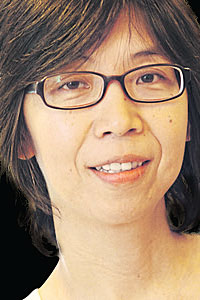It has long been believed that students in Bangkok are offered better academic opportunities, and are smarter, than their peers in provincial schools. But this is not necessarily true.
The situation has changed. Students in provincial schools now have access to a more varied learning environment than in the past. When working on projects, especially those associated with their ways of living, they perform well. At competitions, for example, provincial students present their work impressively.
Take, for instance, the recent Intel Science and Engineering Fair (ISEF), the world's largest pre-college science competition, which took place early this month in the US.
At the national competition, contestants came from schools nationwide, including Bangkok, but most of the finalists from Thailand were teams from provincial schools, including from Surat Thani, Chiang Rai, Nakhon Pathom and Khon Kaen. The team from Damrongratsongkroh School in Chiang Rai beat teams from many countries, winning the top award in the animal science category. The winning Thai team last year at ISEF was from Chachoengsao.
These students are not only academically able, but have well developed life skills. In addition, schools have created good learning opportunities for the children.
All this does not mean students in Bangkok schools are now less capable. On the contrary, young people in the capital are still sharp and able to earn high scores in examinations. They still study hard, and even harder than previous generations.
But if parents still lock themselves up in a "good-score-means-success" mindset and send their kids to tutoring schools without encouraging them to learn life skills, this will hinder their child's development.
I recently read a web forum message posted by a mum of a kindergarten kid asking for recommendations about tutoring schools in order to prepare her little one for entering first grade at a famous school. Her post raised several opinions from the forum members.
One member, who is a doctor and father of two, noted that the number of human neurons — the body's nerve cells — are optimally developed up to the age of two, but what's more important is the synapse, a structure that permits a neuron to pass electrical or chemical signals to another cell. The more integration of the synapse, the better the brain develops. The development of the synapse, which takes place from the age of two to five, is associated with kids' thinking processes. At that age, playing is the only thing that encourages them to think. In a nutshell, the more varied free-form toys they play with, the better for the synapse.
The doctor tried to explain that if kids are rushed and pressured by parental expectation (in this case to enter a famous school at grade one), parents are going to destroy the most important aspect of a child's intellectual growth — the synapse.
Some forum members recommended teachers who they believe are skillful enough to get kids into schools they prefer.
One member questioned if this is all too much. Kindergarten kids are too small to be academically tutored, especially to get into another higher-level school. Personally I agree with this.
My question is what actually lies in store for our nation if we have plenty of students who can achieve high scores in class and solve academic puzzles, but cannot handle things in real life or apply knowledge they learn from school to what they experience in the real world? This is for many parties — parents including — to answer.
Sasiwimon Boonruang is a writer at Bangkok Post's Life section.
